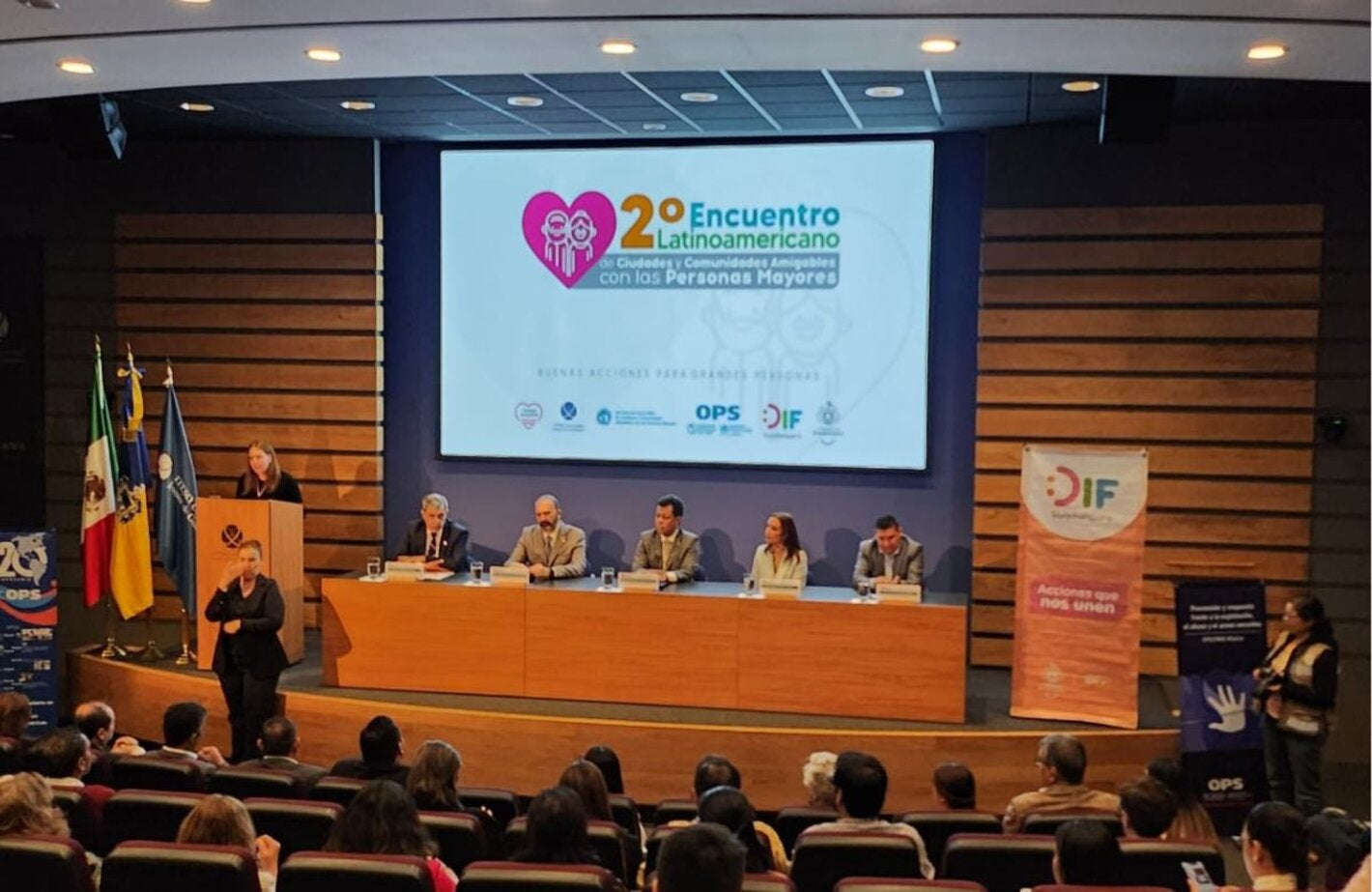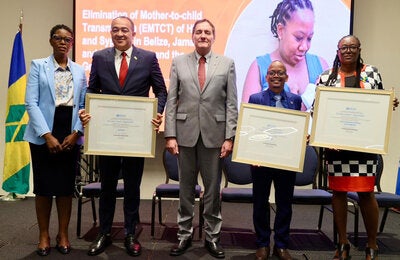
Washington, D.C., 22 November 2023 (PAHO)- The Pan American Health Organization (PAHO) facilitated the exchange of knowledge, experiences and good practices among different actors that promote age-friendly environments in the Americas during the 2nd Latin American Meeting on Age-Friendly Cities and Communities. The meeting featured presentations on opportunities and tools aimed at strengthening work within the WHO Global Network of Age-Friendly Cities and Communities.
Held in Guadalajara, Mexico, from November 13-15, the meeting gathered academics and specialists from Argentina, Bolivia, Brazil, Canada, Chile, Colombia, Costa Rica, Cuba, Mexico, Paraguay, and the United States as part of a continental effort to make cities enabling environments for all, particularly for older persons.
"Through the Age-friendly Cities and Communities program, we work to identify needs such as accessibility, transportation, social issues, care, places for participation and recreation to help older people connect with others," commented Patricia Morsch, Regional Advisor on Healthy Aging, PAHO/WHO.
The objectives of the Decade of Healthy Aging 2021-2030 include ensuring that communities foster the capabilities of older people by designing strategies that support healthy aging and involve multiple sectors and stakeholders. The WHO Global Network of Age-Friendly Cities and Communities serves as a tool to implement age-friendly environments.
Invited specialists represented national, regional, and local governments, affiliate programs, institutions, civil society, universities, the private sector, and intersectoral alliances, comprising the Global Network with 1,540 active members in 51 countries. More than half of its members belong to the Americas region and Mexico's representation in the network has grown exponentially in recent years.
The meeting was co-organized by the Healthy Aging program of the Regional Office of the Pan American Health Organization (PAHO), the PAHO office in Mexico, ITESO of the Jesuit University of Guadalajara, and the Age-Friendly Environments program of the World Health Organization (WHO), together with the governments of Jalisco and Guadalajara, along with the collaboration of AARP International and the Pan-Canadian Age-Friendly Communities Initiative, both affiliated members of the WHO Global Network of Age-Friendly Cities and Communities.
During the three-day regional meeting, participants presented the Global Network to establish the basis and explore relevant examples of implementation of local strategies for age-friendly cities. Cases of intersectoral coordination and successful experiences from network members, at the local or national levels, were analyzed. Additionally, a National Guide to Age-Friendly Cities and Communities was presented.
The meeting served to highlight specific cases and strengthen the networking among various actors dedicated to creating more age-friendly environments in the Region. Among the different presentations, Delfina Alvarez, consultant on age-friendly environments of the PAHO/WHO Life Course Unit, together with Stephanie Firestone of AARP, presented a training program for age-friendly champions. This program was developed based on a research conducted by both organizations, focusing on the importance and challenges of intersectoral coordination and collaboration among actors involved in the promotion of age-friendly environments, particularly in the region.
On the final day, technical and training meetings were held on the WHO MENTOR-AFE program with the objective of designing National Programs for Age-Friendly Cities and Communities. Additionally, the upcoming first online course on Age-Friendly Cities and Communities developed by PAHO/WHO was presented.



